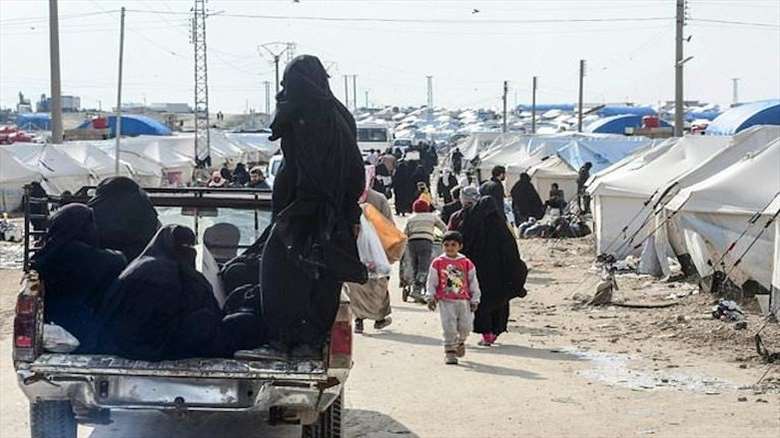Fear, disowning of children among reasons Yezidi women cannot leave Syria camp: advisor

ERBIL (Kurdistan 24) – Fear, the disowning of their children, and forced religious conversion are among the main reasons Yezidi (Ezidi) women cannot leave the Al Hol camp in Syria and return to their hometown in Sinjar (Shingal), according to some of the victims.
Aziza Sabry, a Yezidi (Ezidi) woman captured by the so-called Islamic State, spent four years in captivity and an additional year at Al Hol. Sabry said she arrived at the camp with the same Islamic State family that bought her. “I was afraid to announce my true identity to the camp administration for fear of my life,” she told local media.
“During my four-year captivity, Ezidis were portrayed as infidels and Shingal as the birthplace of infidels. I waited at the camp with a majority of ISIS-affiliated families for a year until I could reveal my identity when my sister came to rescue me,” Sabry added.
Al Hol witnessed an increase in numbers of residents as Syrian Kurdish-led forces, backed by the US-led coalition, launched an offensive to defeat the so-called Islamic State in its last bastion of Baghouz.
The camp was built to hold 40,000 individuals. However, it currently hosts over 72,000 displaced persons. Among them are 30,000 Iraqis.
Rozh-hat Ali, an advisor of the displacement camps in northern Syria, said some of the Ezidi women have been “brainwashed” and refuse to return to their faith.
“Others refuse to disown their children born from ISIS militants as a condition for their return to their families” in Shingal, he added.
Earlier this year, the Ezidi Supreme Spiritual Council revoked a statement where it said it would welcome children born from rape, and clarified that it would only accept the mothers.
Read More: Yezidi spiritual council revokes statement, will not accept children of ISIS rape victims
According to the Ezidi faith’s strict devotion that members of the religious minority must marry within their community to preserve their religion, many rescued Ezidi women have been forced to decide whether to abandon their children or remain in exile with them.
“Hundreds of Ezidi women and girls at the Al Hol camp are afraid of being killed once they return to their parents,” Ali said, adding others are psychologically scarred and fear the Islamic State threat remains, leading them to conceal their identities.
The emergence of the Islamic State and its violent assault on Iraq’s Ezidi-majority city of Shingal in August 2014 led to the displacement of hundreds of thousands of members of the Ezidi community and the killing of scores more, now recognized by the United Nations as an act of genocide.
Most of them fled to the Kurdistan Region while others resettled in neighboring countries or Western states.
Militants subjected women and girls to sexual slavery, kidnapped children, forced religious conversions, executed scores of men, and abused, sold, and trafficked women across areas they controlled in Iraq and Syria.
Editing by Karzan Sulaivany
